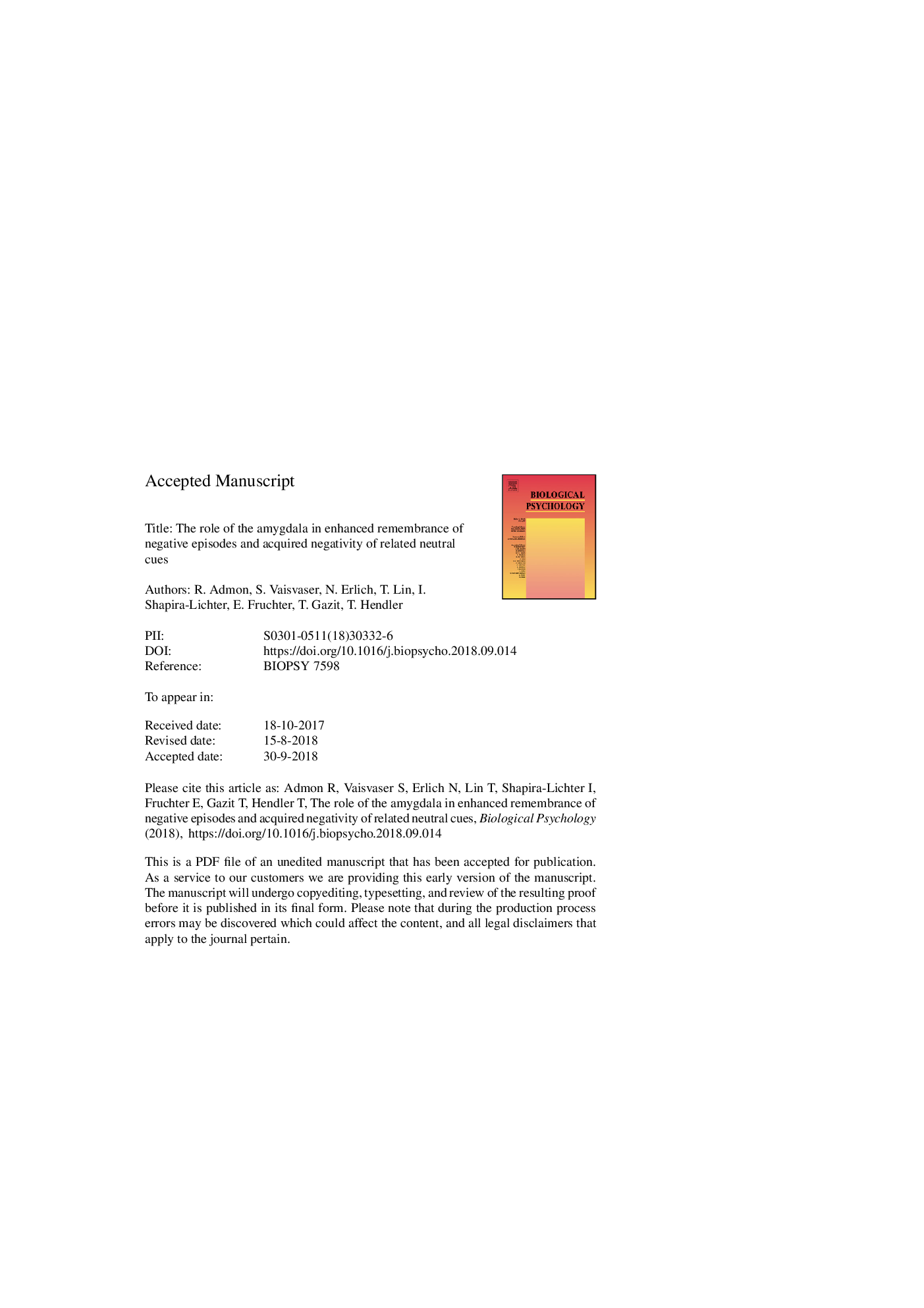| کد مقاله | کد نشریه | سال انتشار | مقاله انگلیسی | نسخه تمام متن |
|---|---|---|---|---|
| 11009049 | 1831922 | 2018 | 34 صفحه PDF | دانلود رایگان |
عنوان انگلیسی مقاله ISI
The role of the amygdala in enhanced remembrance of negative episodes and acquired negativity of related neutral cues
ترجمه فارسی عنوان
نقش آمیگدال در یادآورشدن بیشتر قسمت های منفی و نگرانی ناشی از نشانه های خنثی مرتبط
دانلود مقاله + سفارش ترجمه
دانلود مقاله ISI انگلیسی
رایگان برای ایرانیان
کلمات کلیدی
موضوعات مرتبط
علوم زیستی و بیوفناوری
علم عصب شناسی
علوم اعصاب رفتاری
چکیده انگلیسی
Prior research on the interaction between emotion and episodic memory established that negatively charged events are better remembered compared to neutral events (i.e. enhanced remembrance), as well as that a priori neutral cues that were present in the environment during a negative event can attain aversive meaning by themselves (i.e. acquired negativity). Improved understanding the neural mechanisms that mediate enhanced remembrance of negative episodes and acquired negativity of related neutral cues may carry substantial clinical relevance, particularly in the context of posttraumatic pathophysiology. In order to address this point forty-nine healthy participants completed a novel fMRI task that involve the presentation of neutral pictures before and after a series of short neutral and aversive video-clips from which the neutral pictures were originally extracted, and a subsequent presentation of these pictures as cues for clip recall [termed, Picture-Clip-Picture-Recall (PCPR) task]. Behavioral results indicate that aversive clips were indeed better remembered compared to neutral clips (i.e. enhanced remembrance of negative episode) and that a priori neutral pictures that appeared in aversive clips were rated more negatively after relative to before the exposure to the aversive clips (i.e. acquired negativity of related neutral cues). Whole-brain fMRI analysis revealed that increased amygdala activation in response to pictures when presented as cues for clip recall predicted successful clip remembrance, particularly remembrance of aversive clips. This amygdala activation was also correlated with the magnitude of acquired negativity of the cues following their appearance in aversive clips. Taken together our findings implicate the PCPR as a novel, naturalistic, framework for investigating the neural interface of emotional episodic memory, while highlighting the role of the amygdala in enhanced remembrance of negative episodes and acquired negativity of related neutral cues. Clinical implications are discussed.
ناشر
Database: Elsevier - ScienceDirect (ساینس دایرکت)
Journal: Biological Psychology - Volume 139, November 2018, Pages 17-24
Journal: Biological Psychology - Volume 139, November 2018, Pages 17-24
نویسندگان
R. Admon, S. Vaisvaser, N. Erlich, T. Lin, I. Shapira-Lichter, E. Fruchter, T. Gazit, T. Hendler,
